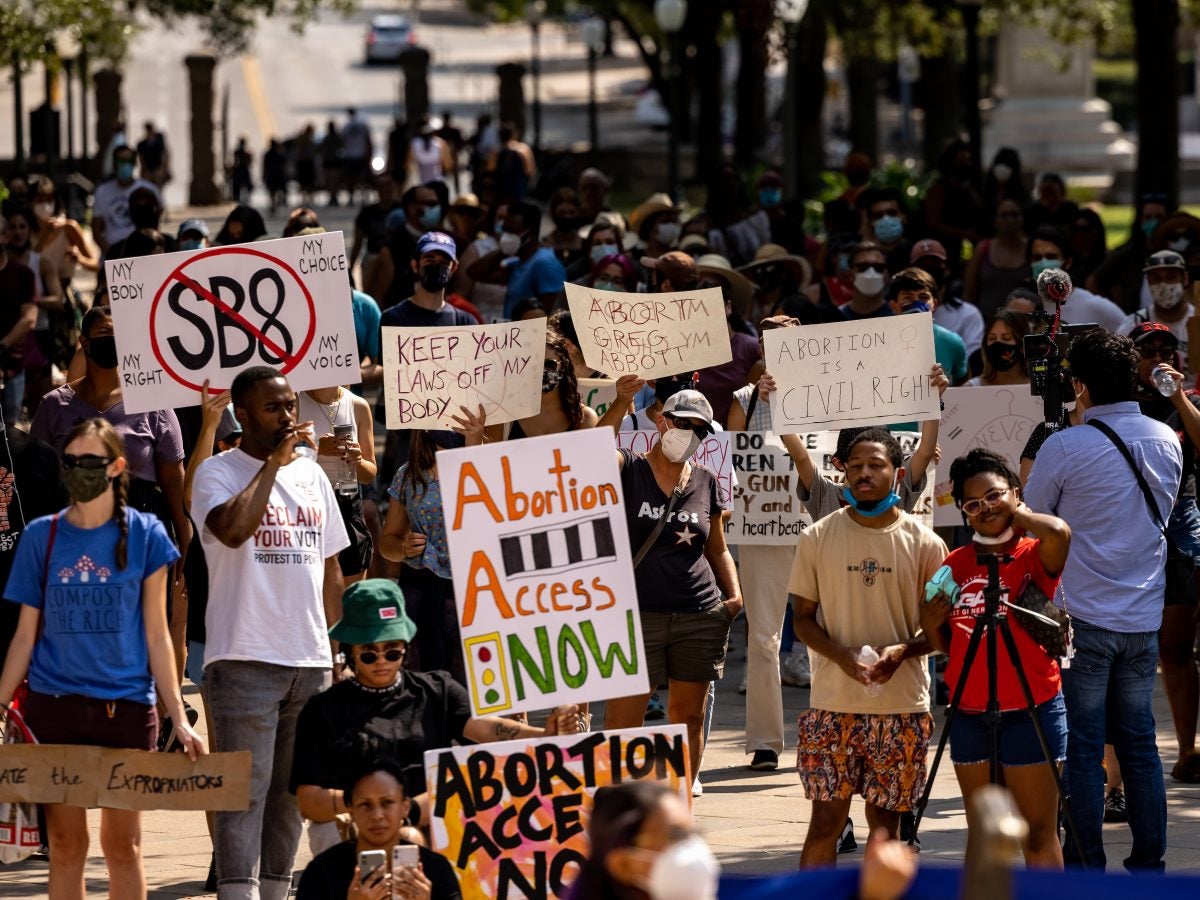
The Supreme Court heard arguments Wednesday on an abortion case called “the most consequential abortion rights case in generations” by the Center for Reproductive Rights.
The case, Dobbs v. Jackson Women’s Health Organization, represents the first time SCOTUS will rule on whether its constitutional to implement a law banning abortions before a fetus is viable. A ruling in Dobbs will decide the fate of Roe v. Wade, the historic 1973 decision that legalized abortion.
At issue is a Mississippi law that bans abortions after 15 weeks of pregnancy.
As Nancy Northup, President & CEO for the Center for Reproductive Rights has said, “if the Court grants Mississippi’s request to overturn Roe, large swaths of the South and Midwest—where abortion is already hard to access—will eliminate abortion completely. More than two generations of Americans have lived their lives relying on access to legal abortion. The ability to make this decision is central to gender equality, and racial and economic justice. The stakes could not be higher.”
Currently, the Supreme Court’s abortion decisions have “upheld Roe‘s central framework — that women have a constitutional right to an abortion in the first two trimesters of pregnancy when a fetus is unable to survive outside the womb, until roughly between 22 and 24 weeks,” NPR reports. “But Mississippi asked the Supreme Court to reverse all its prior abortion decisions and return the abortion question to the states.”
The case follows years of state governments passing legislation that effectively ban the vast majority of abortions, like Texas’ restrictive abortion law that went into effect in September.
Coincidentally, Roe v. Wade also concerned a restrictive Texas law, which made abortion illegal except by a doctor’s orders or to save a woman’s life. Roe struck down the law, holding that a state must weigh its restrictions with women’s fundamental right to privacy, which including their choice to have an abortion.
The case is expected to be decided next summer.